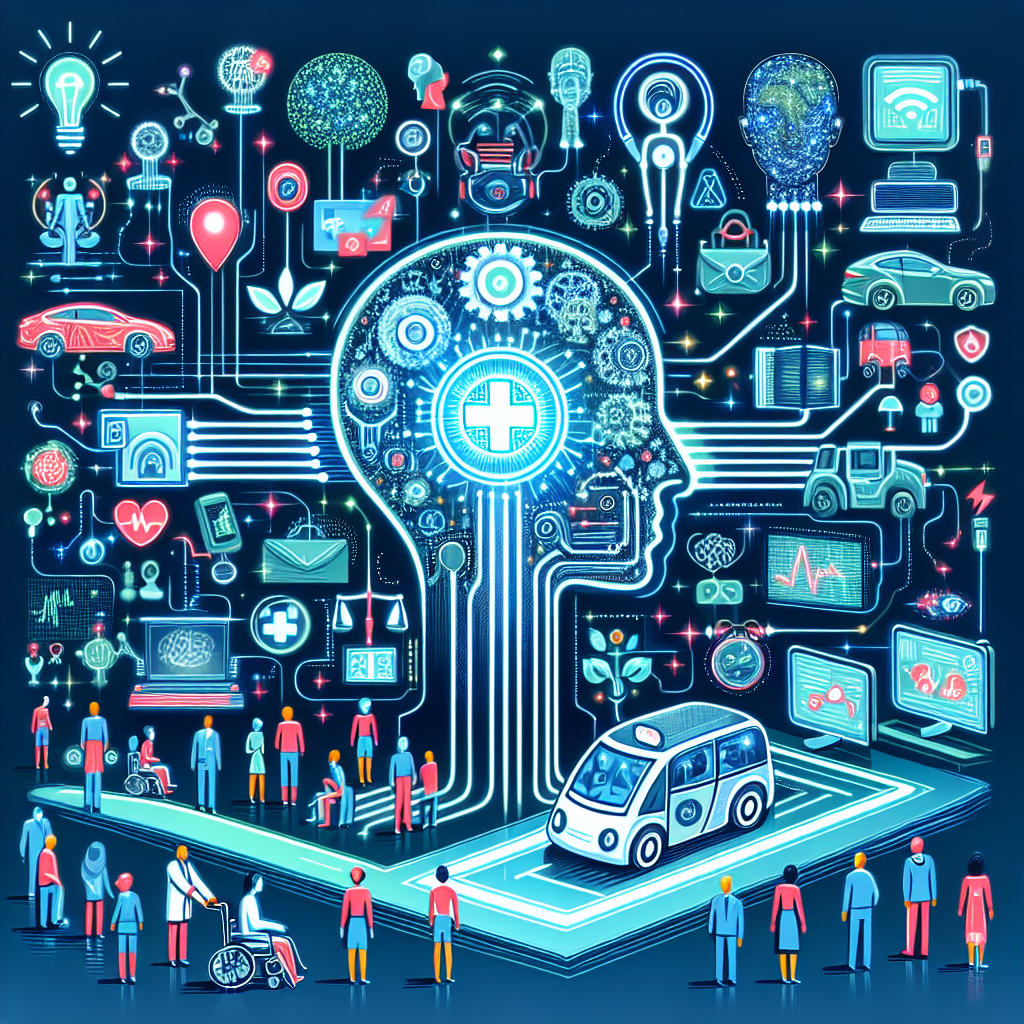Artificial Intelligence (AI) has been a buzzword in recent years, with rapid advancements in technology shaping our society in ways we never imagined. From self-driving cars to virtual assistants, AI is becoming increasingly integrated into our daily lives. In this article, we will explore the impact of AI on society, its benefits and challenges, and what the future holds for this revolutionary technology.
The Impact of AI on Society
AI is transforming various industries, including healthcare, finance, transportation, and entertainment. In healthcare, AI-powered tools are being used to diagnose diseases, recommend treatment options, and improve patient outcomes. In finance, AI is revolutionizing the way we manage our finances, from automated trading algorithms to personal financial assistants. In transportation, AI is powering self-driving cars, drones, and other autonomous vehicles, paving the way for a more efficient and safer mode of transportation. In entertainment, AI is used to personalize content recommendations, create virtual characters, and enhance user experiences.
The Benefits of AI
AI has the potential to address some of the most pressing challenges facing society today, from climate change to healthcare disparities. By analyzing vast amounts of data and identifying patterns, AI can help scientists better understand complex systems and predict future outcomes. AI-powered solutions can also improve efficiency, productivity, and decision-making across various sectors, leading to cost savings and improved outcomes. In addition, AI has the potential to enhance creativity, innovation, and human potential by automating mundane tasks and freeing up time for more meaningful and strategic work.
The Challenges of AI
Despite its potential benefits, AI also poses significant challenges, including ethical concerns, job displacement, bias in algorithms, and data privacy issues. As AI becomes more integrated into our daily lives, questions are raised about the ethical implications of AI-driven decisions and the potential for bias in algorithms. Job displacement is another major concern, as AI automation threatens to disrupt traditional industries and replace human workers with machines. In addition, data privacy concerns are on the rise, as the collection and analysis of personal data raise questions about security, consent, and control.
The Future of AI
Looking ahead, the future of AI is both exciting and uncertain. As AI continues to evolve and expand its capabilities, new opportunities and challenges will emerge. From deep learning and neural networks to quantum computing and robotics, the possibilities are endless. To harness the full potential of AI and ensure a positive impact on society, it is crucial to address ethical, regulatory, and governance issues, promote transparency and accountability, and foster collaboration and innovation across sectors.
Conclusion
Artificial Intelligence is shaping our society in profound ways, from transforming industries and improving outcomes to raising ethical concerns and challenging traditional norms. As we navigate the complex landscape of AI, it is important to embrace the potential of this revolutionary technology while also being mindful of its limitations and risks. By working together to address the challenges and opportunities of AI, we can create a more inclusive, equitable, and sustainable future for all.
FAQs
1. What is Artificial Intelligence?
Artificial Intelligence is a branch of computer science that focuses on the development of intelligent machines that can perform tasks that typically require human intelligence, such as visual perception, speech recognition, decision-making, and language translation.
2. How is AI used in society?
AI is used in society in various ways, including healthcare diagnostics, financial trading, autonomous vehicles, personalized content recommendations, and virtual assistants.
3. What are the benefits of AI?
The benefits of AI include improved efficiency, productivity, decision-making, and outcomes across various sectors, as well as the potential to address complex challenges and enhance human potential.
4. What are the challenges of AI?
The challenges of AI include ethical concerns, job displacement, bias in algorithms, and data privacy issues, which require careful consideration and proactive solutions.
Quotes
“The question of whether a computer can think is no more interesting than the question of whether a submarine can swim.” – Edsger Dijkstra
#Artificial #Intelligence #Shaping #Society #Comprehensive


